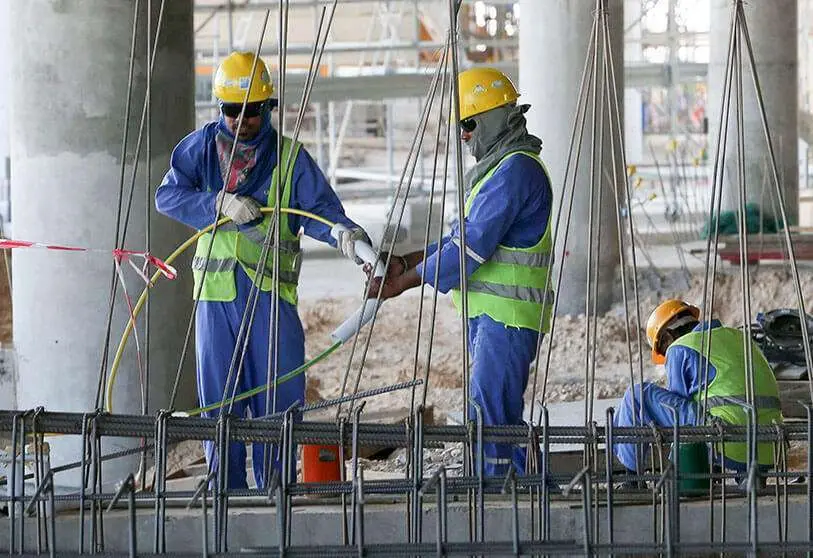UN report denounces "structural racism" against migrant workers in Qatar

Qatar continues to be the focus of international complaints against the treatment of people who come from abroad to work on Qatari territory. The accent is now on the recent United Nations report to be presented at the international body's own Human Rights Council (HRC).
The UN has outlined "serious concerns about structural racial discrimination against non-nationals" in the Qatari nation, according to a latest report that is very critical of the issue and will be presented to the UN HRC later this week.
The report by Tendayi Achiume, the UN special rapporteur on racism, is alarming because it points out that in Qatar there is a genuine "de facto caste system based on national origin, whereby European, American, Australian and Arab nationalities systematically enjoy greater protection of human rights than nationalities from South Asia and sub-Saharan Africa".

Another differentiating aspect is the level of workers' wages. In the Gulf monarchy, those in a lower income bracket are treated much worse than more affluent foreigners, including severe exploitation and discrimination against people from other countries and from poorer backgrounds.
About two million migrant workers are employed in the Middle East country. Within this group, the vast majority of low-wage workers are from South Asia and East and West Africa. Some 18,500 are employed to build the stadiums for the World Cup to be held in Qatar in 2022, but tens of thousands more are employed on projects linked to the event, including construction, accommodation and security.
The UN report indicates that low-income workers continue to suffer severe discrimination and exploitation, almost ten years after the International Federation of Football Associations (FIFA) granted Qatar the status of host of the next World Cup in 2022. Non-payment of wages, unsafe working conditions, racial profiling by the police and denial of access to some public spaces are among the catalogue of abuses described in the report.

In addition to this, as reported by the United Nations, serious complaints have also been received in the past about the deplorable working conditions of foreign workers, especially in relation to the construction of facilities for the FIFA World Cup, in a difficult period such as the current one with the scourge of the COVID-19 pandemic.
Media such as Foreign Policy have already denounced that the overcrowding in unhealthy areas of a large number of these workers in isolated areas on the outskirts of urban centres and the lack of means and protective equipment meant a serious risk for the various workers in terms of the possibility of contagion by the coronavirus.
In fact, recently there were cases diagnosed as positive among these workers and even some death, which triggered all the alarms for a possible spread of the pathogen among this affected group and the rest of the population.

Returning to the subject of the report, its author, Tendayi Achiume, said that Qatar "needs to shed more light on the persistent and complex challenges that undermine the fulfilment of its international obligations"; given the continued suspicions about the treatment of non-nationals on Arab territory.
The text indicates that many lower-income workers are afraid to go to court to report labour abuses because of "entrenched imbalances in the sponsorship system". In addition, workers fleeing abusive employers are considered "fugitives," according to the report.
In the so-called 'kafala' system, workers cannot change jobs without the permission of their employer because they are under the sponsorship system. State plans to abolish it, announced by Qatari leaders in October 2019, have not yet been implemented.
For its part, the Qatari government cancelled a visit by the UN special rapporteur on slavery scheduled for January, shortly after the preliminary results of the report were published.
Meanwhile, on the burning issue of the organisation of the World Cup (on which there are ongoing judicial investigations into alleged bribes for the award of its organisation), FIFA did not recognise the racial discrimination described by Achiume in a statement to The Guardian. The international football governing body indicated that it is working with its partners for "an inclusive tournament experience for all and a firm stand against discrimination of any kind".
Finally, the report points to some "reforms" to be considered by the World Cup organizing committee in Qatar, but notes that "serious challenges remain.








